
Apr 4 , 2020
By Abebe Abebayehu
The Novel Coronavirus (COVID-19) is primarily a public health issue, but it is also a threat to the economy. Being cognizant of the challenges, ensuring that the investment environment in Ethiopia remains favourable and that the investment policy reform momentum that began a year ago is sustained and used as a basis for our future investment drive is critical, writes Abebe Abebayehu, head of the Ethiopian Investment Commission (EIC).
There are many unknowns when it comes to the Novel Coronavirus (COVID-19) pandemic. We do not know yet how long it will last, what its long-term impact will be, or even how it will affect low-income countries where healthcare systems are underdeveloped. Although it has only been four months since the virus was first identified, it has now become a global pandemic unprecedented in our living memory. The ramifications go beyond public health and encompass the economic, social and political spheres. The full effect of COVID-19 is yet to hit African countries, according to the World Health Organization (WHO). Understandably, the organisation is extremely worried that the effect of the virus on African economies and societies will be far more severe than it has been in developed countries.
Thus far, the spread of the virus in African countries has been less extreme than in other parts of the world. To date, in Ethiopia, for example, the number of reported infections is less than 40, and there have not been any confirmed deaths as a result of COVID-19.
However, we cannot afford to be complacent or expect that the current status quo will persist. The late arrival of the virus in Ethiopia served as an early warning and an opportunity to be better informed. In light of this, the swift and decisive actions taken by the government to prepare the country for the damage that COVID-19 may cause are commendable and exemplary for many other African countries.
Acknowledging the need to act fast, Ethiopia has established a ministerial-level committee, led by Prime Minister Abiy Ahmed (PhD). The central objective of the committee and its subsidiary bodies is to provide centralised and coordinated leadership in the fight against this invisible enemy.
The COVID-19 crisis is primarily a public health threat and, therefore, the immediate policy focus should be on how to strengthen our healthcare system through public investment and by mobilising material and financial support from our development partners. Over the past two decades, Ethiopia invested heavily in its social sectors, gaining global recognition and admiration for its efforts and stellar achievements, particularly in improving access to health care services. We must continue to build on that success to ensure that the health sector can cope with the challenges posed by COVID-19 or any other pandemic that may arise in the future.
COVID-19 is also emerging as an economic threat. In the absence of a vaccine to fight the virus, the only effective measure that countries can deploy to control the spread is to keep their populations at home and away from workplaces, schools, restaurants, markets or any place where people have to interact in close proximity. Ethiopia is adopting this strategy along with 150 other countries. Undoubtedly, such drastic measures are likely to have a negative impact on the economy, adversely affect the smooth operation of investment projects and could thereby curtail the expected positive impact of recent reforms.
While taking the necessary measures to control the spread of COVID-19, the government is also closely monitoring the impact of the outbreak on the economy, trade and investment flows, and the prospects for sustaining and deepening the high-level growth that Ethiopia has enjoyed in the last two decades. Drawing lessons from other countries and past experiences, the Ethiopian Investment Commission (EIC) intends to ensure that the investment environment in Ethiopia remains favourable and that the investment policy reform momentum that began a year ago is sustained and used as a basis for our future investment drive.
It may appear premature to talk about ‘lessons’ while we are in the middle of a global pandemic. However, sometimes the best lessons are learned while experiencing a crisis and best acted-upon before it is over and forgotten. Every experience, even a crisis, presents learning opportunities that should not be missed.
For example, we learned from the Chinese response to COVID-19 of the need to ‘act fast’ and implement policy measures with ‘intensity’ of purpose and effort, attaching a sense of extreme urgency to the successful attainment of the desired goals and policy objectives. This approach could equally apply to the implementation of investment policies and the earnest efforts to attract and retain quality investments to effectively mitigate the economic ramifications of the virus.
Among the major reforms undertaken recently are the modernisation of Ethiopia’s investment laws and the alignment of the investment policy regime with the national development objectives. The revised investment proclamation was approved by parliament in January 2020, signalling a major shift in the country’s policy direction toward investment, particularly foreign investment.
One of the major changes of this law was the establishment of the Investment Council, chaired by the Prime Minister with presidents of regional governments as members, as well as the inclusion of private sector representatives on the Investment Board. In times of crisis such as this, such coordination and decision-making bodies are better able to fast-track timely decisions to fight the crisis while also being able to monitor, hold accountable and adaptively implement the various measures being taken.
Foreign Direct Investment (FDI) brings with it not only the finances needed to initiate investment projects but also the technology, technical know-how, management skills, product design and the marketing network that Ethiopia very much needs to produce high-quality products and build domestic productive capacity by building technological skills.
The new investment proclamation has opened up sectors and activities that were previously closed to foreign investors while, at the same time, ensuring that certain activities remain reserved for local investors and the Ethiopian diaspora. More importantly, however, the new legal regime has adopted a "negative" list approach to identify economic sectors and activities that are fully or partially restricted to foreign investment, implying that all other areas not on the list are open to foreign investors.
International experience shows that most foreign investors find this approach preferable, more transparent, predictable and less confusing. The main principles that guided the investment reform process were the need to adopt international best practices - while ensuring that Ethiopia’s context is taken into consideration - and ensuring that the new regime is compatible with attracting quality investment that contributes to exports, job creation and economic competitiveness.
Extensive consultations were conducted with key stakeholders, in particular, the private sector and public institutions, to solicit perspectives in designing an investment policy regime that meets Ethiopia’s needs and conditions. At a time like this, with skills, know-how and technology being critical aspects of the fight against COVID-19, FDI can play a critical role.
Take, for example, Hawassa Industrial Park, where up to a million three-layer masks are being manufactured and supplied to the Ministry of Health, using special fabrics developed in China. Other FDIs in the industrial parks are exploring ways to develop personal protective equipment (PPE) for the Ethiopian and regional markets.
Having already launched critical reforms, the next step is to ensure that the new investment policy regime is implemented effectively and with intense effort. As an investment promotion agency, the EIC will carry the primary responsibility of implementation, working closely with the various public institutions at the federal and regional levels.
Being cognizant of this heavy responsibility, we have begun to introduce the tools and capacities that we need to create a dynamic investment promotion agency fit for the tasks with which it has been entrusted. Important requirements of effective investment promotion are proactivity, flexibility and pragmatism, which in our case means regularly reviewing our investment promotion strategy and facilitation tools and ensuring that they are compatible with the changing global economic environment.
We anticipate radical changes, including trends in FDI flows, resulting from COVID-19-related shocks. We believe that we already have the necessary policy tools to pick up the investment promotion momentum and attract investment with renewed vigour. In doing so, we will also ensure that investors that are already contributing to Ethiopia’s development are also supported and do not unnecessarily suffer from the consequences of the unfolding economic downturn.
The assessments by leading international institutions that monitor FDI trends are not encouraging. It is estimated that global FDI flows during 2020 may decline by up to 40pc. It is difficult to say how these trends will affect Ethiopia. Since 2012, FDI inflow to Ethiopia has been growing by 50pc a year on average, reaching a peak of 4.1 billion dollars in 2017. In 2018, Ethiopia was still the largest recipient of FDI in the East African region and the fifth largest in Africa.
Before the COVID-19 crisis, our hope and expectation was that FDI inflow to Ethiopia during 2020 would exceed that of 2017. This optimistic assessment was based on solid reasoning. We were encouraged, for example, by the successful launch of the Homegrown Economic Reform Agenda, which has already begun to stabilise the macroeconomic policy environment. The finalisation of the national 10-year plan also provided the priorities and policy directions for the next half decade.
The opening of critical productive and enabling sectors and activities that were previously closed to foreign investment gave hope that new investors would come to take advantage of the newly open sectors. The government’s privatisation programme involving a number of state-owned enterprises in key sectors such as energy, telecom, services and manufacturing was another factor that enhanced our expectation of increased FDI inflow as foreign companies either purchase or participate in joint-venture arrangements. These are some of the ongoing reform efforts that we believe will be the building blocks that position our country as an attractive investment destination.
We remain optimistic and proactive. We must seize every opportunity, however difficult the circumstances. To this end, we have been working with development partners to develop a package of support for investors starting with the industrial parks - but the programme, if successful, will expand out to all sectors - whereby investors are incentivised to fully resume operations after the COVID-19 downturn.
A variety of economic and policy stimuli are being put together with the support of key development partners to test out a radical approach toward retraining workers during the downtime to boost productivity, potentially retooling factories for new markets during the crisis and, critically, economic and policy support to alleviate financial pressures during the downturn but also during the recovery phase. All this is to ensure the economy bounces back strong from COVID-19.
It is crucial to reiterate that all of the reasons to invest in Ethiopia are still in place. Despite the uncertainties clouding our horizon, there are silver linings, and we are determined to learn lessons and opportunities for investment.
I remain absolutely confident that Ethiopia will continue to be the most attractive investment location in Africa for the foreseeable future. However, in anticipation of the changing global economic landscape and the ambiguities created by COVID-19, we are re-evaluating our investment promotion strategy to make it even more proactive, targeted and engaging. COVID-19 has taught us that acting fast, preparing for imminent challenges and implementing policy measures with intense effort and a sense of urgency is the most effective approach to meeting policy objectives and tackling a crisis.
PUBLISHED ON
Apr 04,2020 [ VOL
21 , NO
1040]

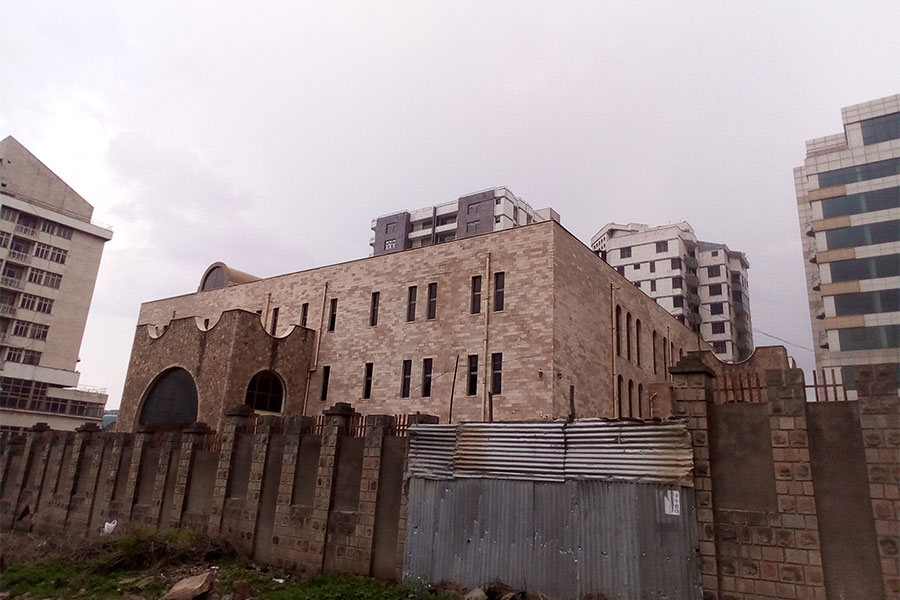
Featured | Sep 08,2019

Viewpoints | Aug 10,2024
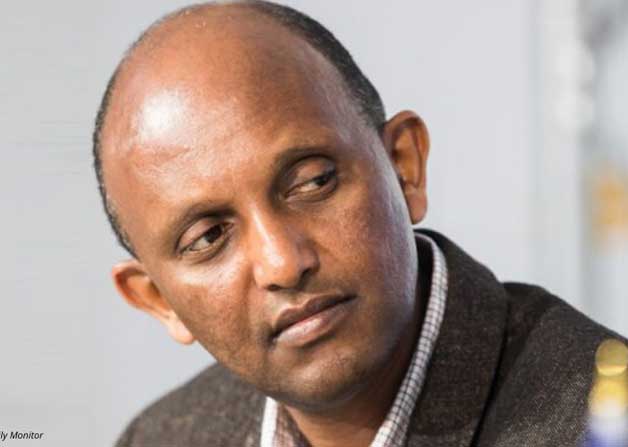
Radar | Jan 23,2021
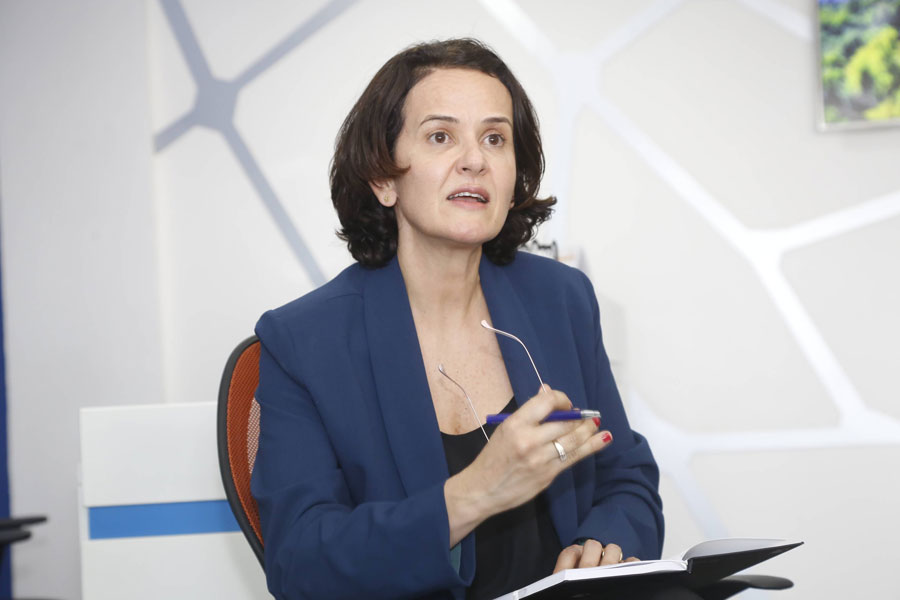
Exclusive Interviews | Nov 06,2021
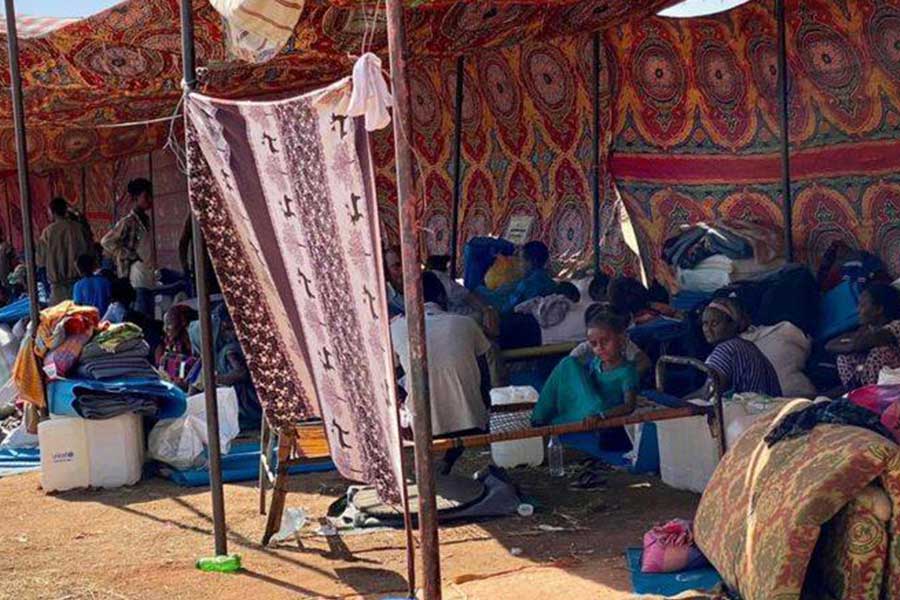
Fortune News | Nov 21,2020

Viewpoints | Apr 19,2025

Fortune News | Oct 30,2022
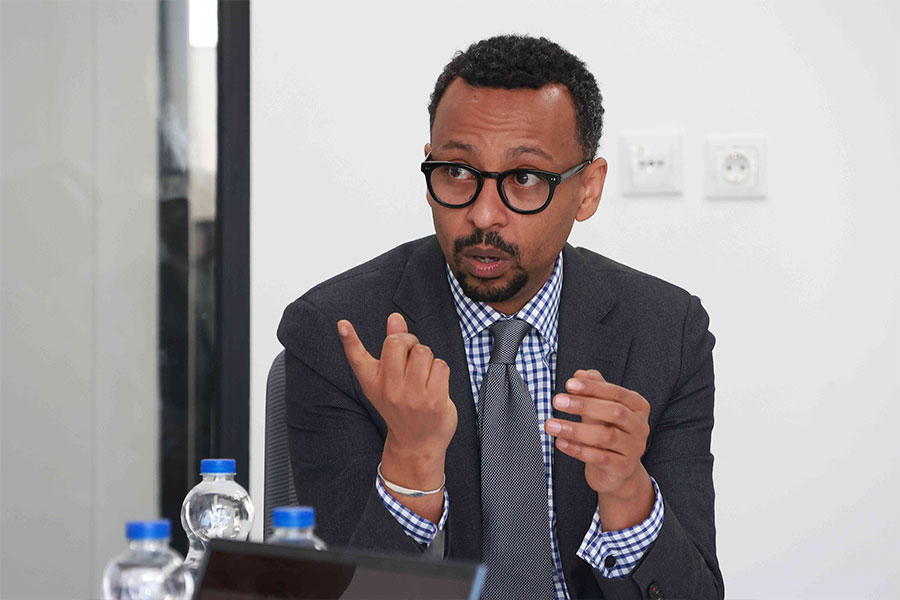
Fortune News | Oct 28,2023

My Opinion | Nov 04,2023

Commentaries | May 18,2019

My Opinion | 131673 Views | Aug 14,2021

My Opinion | 128039 Views | Aug 21,2021

My Opinion | 126001 Views | Sep 10,2021

My Opinion | 123622 Views | Aug 07,2021

Dec 22 , 2024 . By TIZITA SHEWAFERAW
Charged with transforming colossal state-owned enterprises into modern and competitiv...

Aug 18 , 2024 . By AKSAH ITALO
Although predictable Yonas Zerihun's job in the ride-hailing service is not immune to...

Jul 28 , 2024 . By TIZITA SHEWAFERAW
Unhabitual, perhaps too many, Samuel Gebreyohannes, 38, used to occasionally enjoy a couple of beers at breakfast. However, he recently swit...

Jul 13 , 2024 . By AKSAH ITALO
Investors who rely on tractors, trucks, and field vehicles for commuting, transporting commodities, and f...

Jun 28 , 2025
Meseret Damtie, the assertive auditor general, has never been shy about naming names...

Jun 21 , 2025
A well-worn adage says, “Budget is not destiny, but it is direction.” Examining t...

Jun 14 , 2025
Yet again, the Horn of Africa is bracing for trouble. A region already frayed by wars...

Jun 7 , 2025
Few promises shine brighter in Addis Abeba than the pledge of a roof for every family...

Jun 29 , 2025
Addis Abeba's first rains have coincided with a sweeping rise in private school tuition, prompting the city's education...

Jun 29 , 2025 . By BEZAWIT HULUAGER
Central Bank Governor Mamo Mihretu claimed a bold reconfiguration of monetary policy...

Jun 29 , 2025 . By BEZAWIT HULUAGER
The federal government is betting on a sweeping overhaul of the driver licensing regi...

Jun 29 , 2025 . By NAHOM AYELE
Gadaa Bank has listed 1.2 million shares on the Ethiopian Securities Exchange (ESX),...